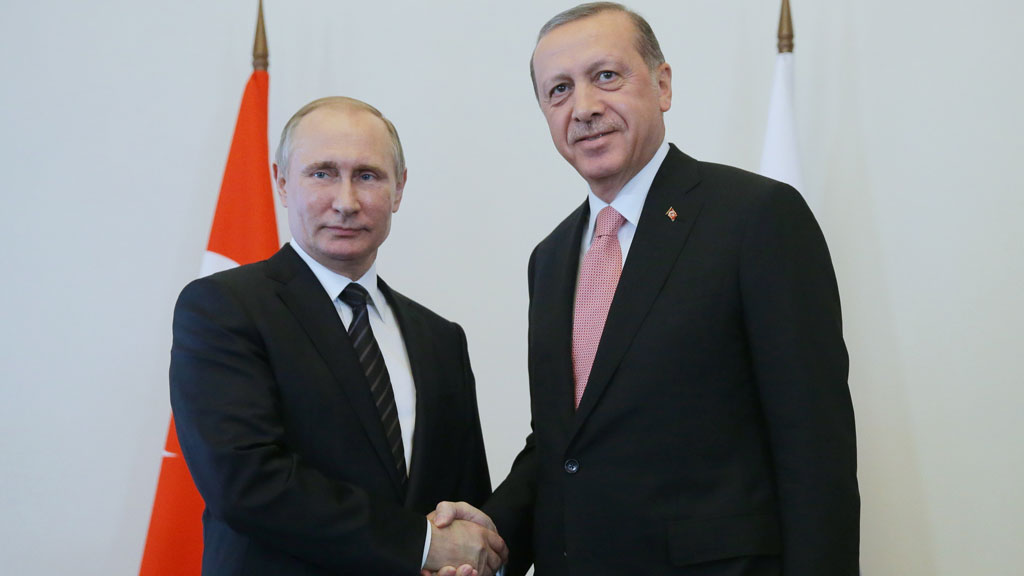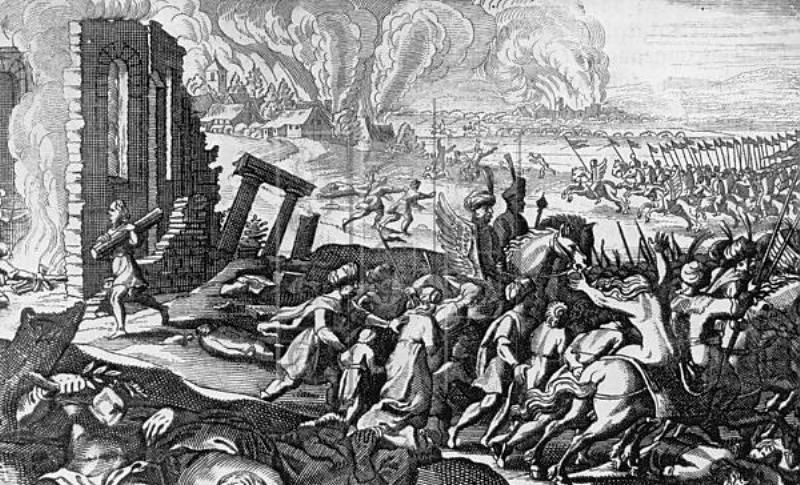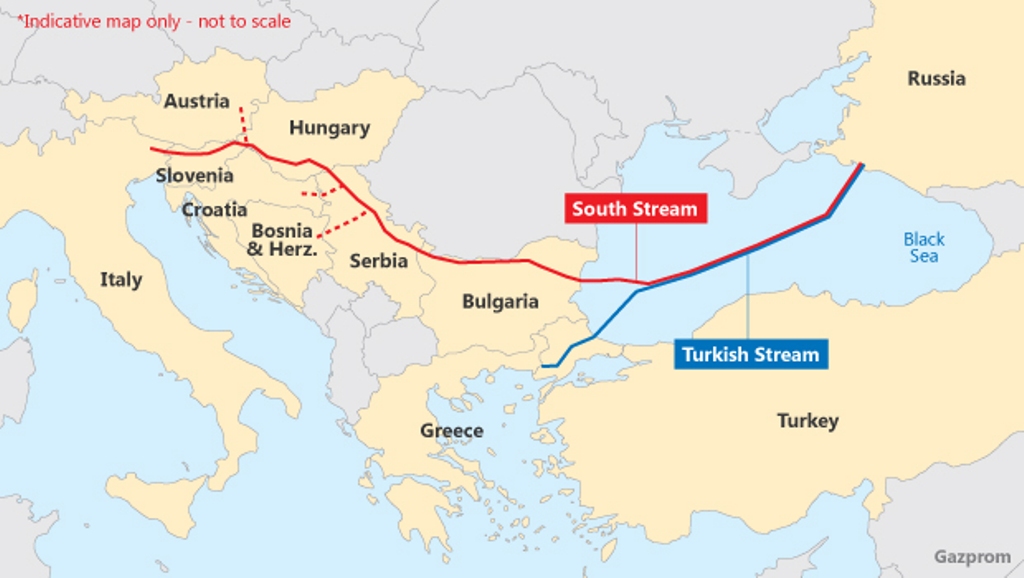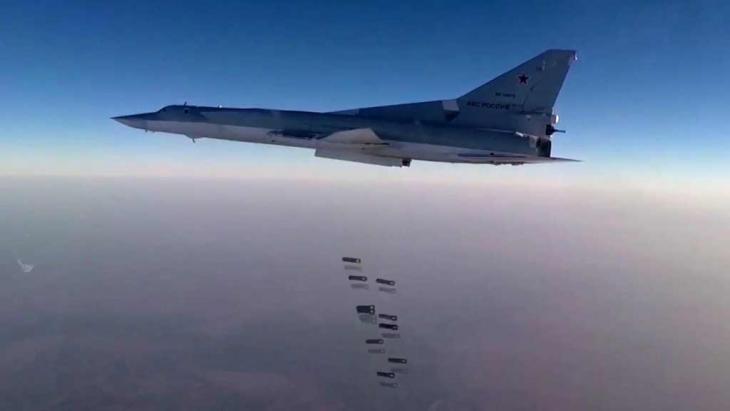Farewell America

Rapprochement between Turkey and Russia had almost everything against it – if you concede, that is, that the past and the present constitute ″almost everything″. Theirs is one of history′s great and powerful traditional enmities.
Ever since the Ottomans conquered Constantinople in 1453, the Grand Dukes of Moscow – who from Ivan the Terrible onwards began calling themselves Tsars – dreamed of ″reconquering″ the holy city of Orthodox Christianity in its name. The Russian Tsars wanted to claim the Byzantine inheritance on the eastern shores of the Mediterranean.
Russia and the Ottoman Empire were therefore on opposite sides in the First World War. The Turks justified their brutal actions against the Armenians – described today in many parts of the world as genocide – by arguing that Armenian subjects had, among other things, secretly been helping Moscow.
Lenin and Ataturk called a truce after the two revolutionaries had toppled their respective ruling dynasties. The founders of both republics were more concerned with domestic politics than with the traditional enmity.

Bulwark against the Soviets
After the Second World War, Russian-Turkish rivalry continued throughout the Cold War. The Turkish republic slid under the protection of the NATO umbrella and became an important ally of the United States. For the US, Turkey was a bulwark in Asia Minor against a feared expansion by the Soviet Union to the south.
When Turkish generals loyal to NATO staged coups against ″unreliable″ governments in Ankara in the 1960s, ′70s and ′80s, they could be sure of American goodwill. Washington even turned a blind eye when Turkey occupied northern Cyprus in a swift campaign in 1974.
Today, the young Caucasian state of Armenia is under Russian protection; yet this obstacle to Russian-Turkish rapprochement is now almost the lesser one. The fact that the two countries have taken opposing positions on the war in Syria seems more problematic. Russia sided with Assad right from the start and has even rescued him for the time being with its ongoing military intervention, which began in September 2015. Turkey lent its support early on to the Syrian rebels, not changing its stance when radical Sunni groups gained the upper hand in the rebel ranks.
Mutual strategic interests
Yet in spite of all this, a Russian-Turkish rapprochement is now underway. It would be silly to say that this is because the two states are ruled by men of a similar type; that Putin and Erdogan have similar ideas about power, holding on to power and the role of domestic political opposition. Rather, it seems that suddenly there are mutual strategic interests and aims that challenge, perhaps even eclipse, all the things that divide them.
The ″Turkish Stream″ gas pipeline, which would transport Russian gas through the Black Sea to Turkey and possibly on from there to Greece and Italy, is evidence that the will is there for economic co-operation on a grand scale. However, it seems that it would be incorrect – too ″modern European″ – to think that bilateral Russian-Turkish interests on the energy market were the decisive element in this rapprochement.

The world is changing extremely fast and one of the political drivers of this change is Russia′s President Putin. The Kremlin strong man and ex-KGB spy would like to put a stop to the reduction of Russian influence since the end of the Cold War – felt by many as a humiliation – and, where possible, reverse it. In other words: he would like to get revenge on the West and especially on its leading power, the United States.
Aggressive alliance policy
In doing this, Putin obviously knows how to make a realistic assessment of the possibilities open to him. He resorts to means that his opponents clearly find confusing: asymmetric warfare, secret warfare, disinformation, cyber warfare – and an aggressive alliance policy in the Middle East. Putin knows that he cannot beat the West in a direct confrontation. But he can annoy, disturb and provoke his opponent by inflicting a thousand little cuts. He can help the West to defeat itself. In this the Russian president may even have learned from al-Qaida and the 9/11 operation.
Putin knows that if he succeeds in breaking Turkey out of the Western alliance, even just a little, it would hit the West harder than preventing Ukraine from joining the EU, or the Russian annexation of the Crimea. The failed coup against President Erdogan in July created a golden opportunity for Putin to revive and progress the rapprochement between Russia and Turkey, which was temporarily interrupted at the end of 2015 when a Russian fighter jet was shot down over the Turkish-Syrian border. Future historical research will have to determine whether the downing of the plane was the result of routine military procedure by Turkish air defence, or whether it was a conscious attempt by an interested party to prevent the Russian-Turkish rapprochement. This, at least, is the impression Erdogan wants to give when he says that the two Turkish soldiers who shot the Russian Sukhoi jet out of the sky were members of the Gulen movement who were arrested in the aftermath of the attempted coup.
How exactly the Russian-Turkish rapprochement will affect the Syrian battlefield is still unclear. What is striking is that the Turkish tank units that advanced into Syrian territory at the end of August decimated, of all groups, the Syrian Democratic Forces (SDF). This is a Kurdish-Arab militia that had inflicted losses on Islamic State, with the help of the US.

"Farewell to America"
Putin has clearly manifested his intention of preventing an order of peace in Syria that is imposed by the West and the Sunni monarchies in the Gulf States. It is possible that he wants to persuade Erdogan to insist, in conjunction with Russia, on an alternative blueprint for peace in which there would be a future for Assad, or a successor from his regime. Erdogan will stoop to any number of things for a guarantee that no Kurdish microstate will be established on Syrian territory.
The United States will not accept Turkey′s ″farewell to America″, as the journalist Can Dundar expressed it, without a fight. The Russian-American struggle for Turkey is well underway, even if details are not appearing in the daily ″news″. What′s clear is that, in vying for Turkey′s favour, both Washington and Moscow are prepared to drop the Kurds as allies.
The German foreign minister′s comments after the meeting between Putin and Erdogan in St. Petersburg in early August should be viewed with the necessary scepticism. Steinmeier was playing down the significance of the event. The national newspapers′ foreign policy commentators eagerly concurred. They pointed to the fact that the ″trading volume″ between Turkey and the EU was far greater than that between Turkey and Russia.
Adding up trade statistics on a pocket calculator distorts the view of the fact that revenge, schadenfreude and thwarting the enemy′s plans could be dominant political motives. The Russian and Turkish presidents seem to find common ground in motives such as these.
Instead of playing down this development with the help of the media, the German government needs to ask itself how it was possible for things to get to this point. The historical unlikelihood of the Russian-Turkish rapprochement should give pause for thought. How great must be the loss of the Western alliance′s standing, attractiveness and deterrent power if heads of state like Putin and Erdogan enjoy getting one over on this same West with their rendezvous? Perhaps the Western alliance′s last great achievement will be to end the traditional enmity between Russia and Turkey.
Stefan Buchen
Translated by Charlotte Collins
© Qantara.de 2016
Stefan Buchen works as a journalist with the magazine programme ′Panorama′ on the German state television channel ARD.
